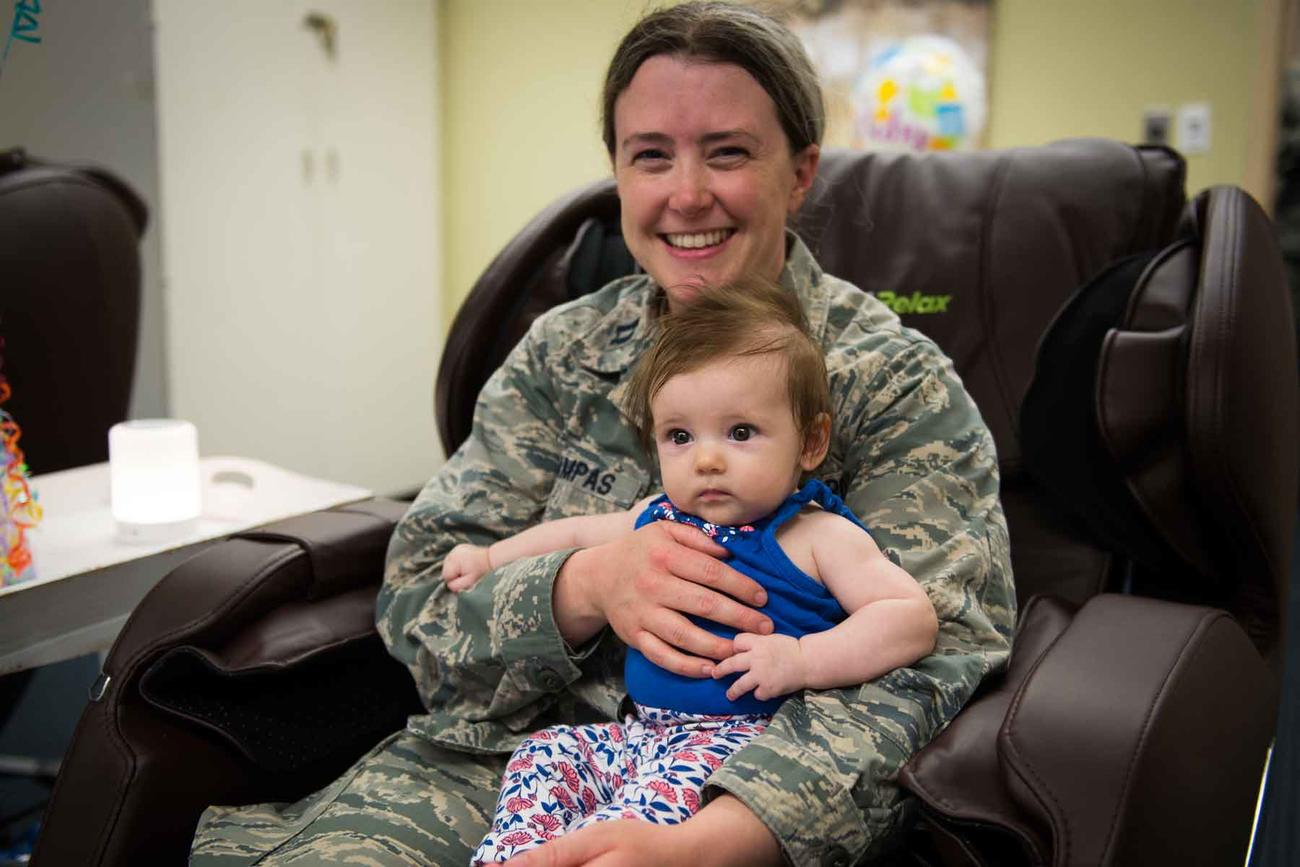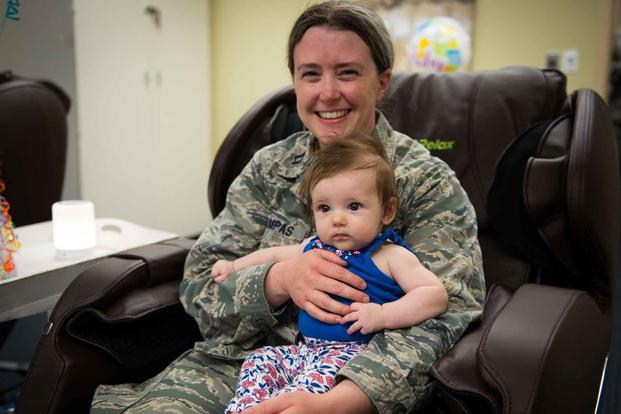

The Defense Department will now cover certain costs for service members to ship breast milk during a permanent change of station move.
Service members breastfeeding an infant up to 12 months old can now be reimbursed up to $1,000 in shipping expenses as part of ongoing initiatives to alleviate out-of-pocket costs for troops during military-related travel. The benefit does not apply to military spouses or other family members who are nursing infants.
“This allowance targets those costs that military families with infants previously had to pay out of pocket,” said Christopher Woods, policy branch chief at the Defense Travel Management Office, during an interview Thursday with Military.com. “Simply put, this policy helps make moves easier, and it strengthens support for military families.”
The new policy will cover the cost of items such as dry ice, commercial shipping, excess baggage fees and other associated expenses. It will not reimburse for packaging or the cost of containers — those expenses are not allowable under other regulations, according to Woods.
During a permanent change of station move, service members may be separated from their babies as a result of requiring separate travel arrangements, or their babies may be accompanying them but need supplies such as dry ice and other equipment during international flights or long drives to the next duty station.
More than 400,000 military personnel move each year, and up to 29,000 may benefit from the change, according to Woods.
The update to the Joint Travel Regulations, effective as of June 1, follows a similar change in 2022 when the DoD began reimbursing service members and civilian employees for costs associated with shipping breast milk during official travel.
In April, an Air Force nurse contacted Military.com questioning why the benefit was extended for temporary duty but not for permanent change of station moves. One of her patients, an active-duty family, had an eight-week old baby and a freezer full of breast milk that they were told they would have to ship themselves.
“I know this may be a rare situation, but [it] would have a major impact on military families,” the nurse wrote.
DoD officials said the military services raised concerns about the PCS issue, and the travel policy office “quickly coordinated with stakeholders across DoD to craft a solution.”
“For those service members who have a recommendation — good, bad, whatever it is — we encourage them to work with their local finance and personnel offices and provide feedback to them. Those offices can work in conjunction with headquarters offices, and those issues can be brought forward,” Woods said.
That seems to be what happened in the case of the civilian nurse. Deedra Nelson, who works for the New Parent Support Program at Hill Air Force Base, Utah, said she spoke with her leadership, who took her concerns to the Military Community Advocacy Directorate.
She was surprised by the speed of the change.
“It will make a huge difference for [my client’s] family, and [they] are incredibly grateful,” Nelson wrote in an email to Military.com after the announcement. “When service members and families see that their concerns and suggestions are taken seriously, it can boost morale and trust in leadership, and prevents the DoD from becoming stagnant with policy initiatives.”
To be eligible for the reimbursement, service members must receive authorization with their PCS orders before they incur any expenses. The expenses then must be claimed in their PCS vouchers once the move is complete.
All receipts, regardless of amount, must accompany the claim, according to the policy.
Only active-duty nursing mothers are eligible for the reimbursement. Woods said civilian employees have allowances that cover miscellaneous expenses, depending on their agreements with the Defense Department.
“We’re proud to support this initiative. We’re proud to make moves easier for service members and their families,” Woods said.
Related: The Military’s New Pet Transportation Policy: What It Means to You
